Filter by
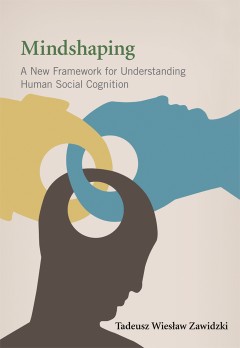
Mindshaping: A new framework for understanding human social cognition
"In this novel account of distinctively human social cognition, Tadeusz Zawidzki argues that the key distinction between human and nonhuman social cognition consists in our complex, diverse, and flexible capacities to shape each other's minds in ways that make them easier to interpret. Zawidzki proposes that such "mindshaping"--Which takes the form of capacities and practices such as sophistica…
- Edition
- -
- ISBN/ISSN
- 9780262313278
- Collation
- 1 online resource (xxiii, 317 pages)
- Series Title
- -
- Call Number
- -
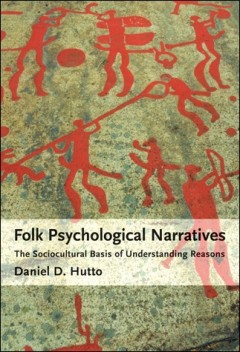
Folk psychological narratives The Sociocultural Basis of Understanding Reasons
An argument that challenges the dominant "theory theory" and simulation theory approaches to folk psychology by claiming that our everyday understanding of intentional actions done for reasons is acquired by exposure to and engaging in specific kinds of n.
- Edition
- -
- ISBN/ISSN
- -
- Collation
- 1 online resource (xvii, 402 pages)
- Series Title
- -
- Call Number
- -

The real world of college :what higher education is and what it can be
"The authors present the results of a large-scale study of American colleges, and offer recommendations for rethinking and restructuring the delivery of liberal arts education"--OCLC-licensed vendor bibliographic record.
- Edition
- -
- ISBN/ISSN
- 0262368536
- Collation
- 1 online resource.
- Series Title
- -
- Call Number
- -
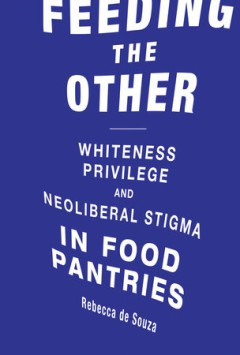
Feeding The Other :whiteness, privilege, and neoliberal stigma in food pantries
How food pantries stigmatize their clients through a discourse that emphasizes hard work, self help, and economic productivity rather than food justice and equity. The United States has one of the highest rates of hunger and food insecurity in the industrialized world, with poor households, single parents, and communities of color disproportionately affected. Food pantries--run by charitable an…
- Edition
- -
- ISBN/ISSN
- 9780262352789
- Collation
- 1 online resource (312 pages).
- Series Title
- -
- Call Number
- -

Perspectives on imitation :from neuroscience to social science.
A state-of-the-art view of imitation from leading researchers in neuroscience and brain imaging, animal and developmental psychology, primatology, ethology, philosophy, anthropology, media studies, economics, sociology, education, and law.Leading researchers across a range of disciplines provide a state-of-the-art view of imitation, integrating the latest findings and theories with reviews of s…
- Edition
- -
- ISBN/ISSN
- 9780262275958
- Collation
- 1 online resource (1 volume) :illustrations
- Series Title
- -
- Call Number
- -

Mindvaults : sociocultural grounds for pretending and imagining
An argument that the uniquely human capacities of pretending and imagining develop in response to sociocultural and sociopolitical pressures in childhood.The human mind has the capacity to vault over the realm of current perception, motivation, emotion, and action, to leap--consciously and deliberately--to past or future, possible or impossible, abstract or concrete scenarios and situations. In…
- Edition
- -
- ISBN/ISSN
- 9780262314336
- Collation
- 1 online resource (xxi, 236 pages)
- Series Title
- -
- Call Number
- -

Embodiment enaction and culture investigating the constitution of the shared …
The first interdisciplinary investigation of the cultural context of enactive embodiment, offering perspectives that range from the neurophilosophical to the anthropological."The book brings together new contributions by some of the most renowned scholars in the field and the latest results from up-and-coming researchers. The contributors explore conceptual foundations, drawing on work by Husse…
- Edition
- -
- ISBN/ISSN
- 9780262337120
- Collation
- 1 online resource (viii, 441 pages)
- Series Title
- -
- Call Number
- -
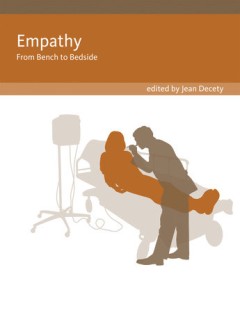
Empathy: From Bench to Bedside
Recent work on empathy theory, research, and applications, by scholars from disciplines ranging from neuroscience to psychoanalysis.OCLC-licensed vendor bibliographic record.
- Edition
- -
- ISBN/ISSN
- 9780262298612
- Collation
- 1 online resource (ix, 324 pages) :illustrations.
- Series Title
- -
- Call Number
- -
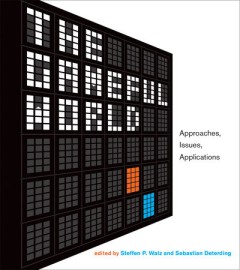
The gameful world : approaches, issues, applications
What if every part of our everyday life was turned into a game? The implications of "gamification."OCLC-licensed vendor bibliographic record.
- Edition
- -
- ISBN/ISSN
- 0262325713
- Collation
- 1 online resource (ix, 676 pages) :illustrations
- Series Title
- -
- Call Number
- -
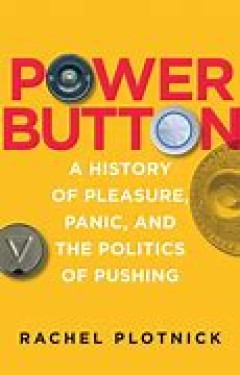
Power Button: A History of Pleasure, Panic, and the Politics of Pushing
Push a button and turn on the television; tap a button and get a ride; click a button and "like" something. The touch of a finger can set an appliance, a car, or a system in motion, even if the user doesn't understand the underlying mechanisms or algorithms. How did buttons become so ubiquitous? Why do people love them, loathe them, and fear them? In Power Button, Rachel Plotnick traces the ori…
- Edition
- -
- ISBN/ISSN
- 9780262347501
- Collation
- 1 online resource
- Series Title
- -
- Call Number
- -
 Computer Science, Information & General Works
Computer Science, Information & General Works  Philosophy & Psychology
Philosophy & Psychology  Religion
Religion  Social Sciences
Social Sciences  Language
Language  Pure Science
Pure Science  Applied Sciences
Applied Sciences  Art & Recreation
Art & Recreation  Literature
Literature  History & Geography
History & Geography